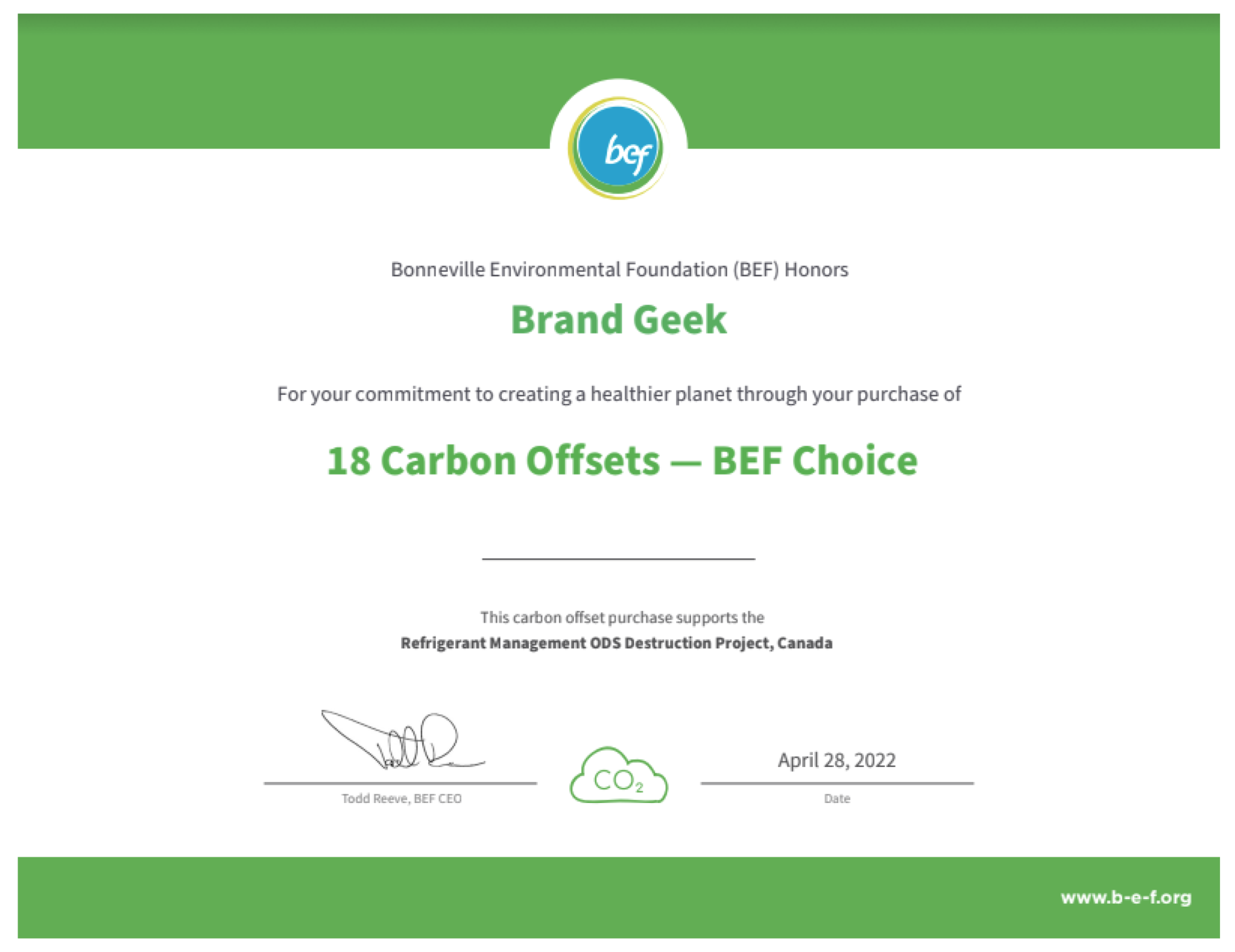Brandgeek proudly supports Mountain Area Preservation and is humbled to be…
Sustainable Brand Leadership — Gil Friend, Jeffrey Hollender, and Chip Conley put themselves on the line for change
Gil Friend of Natural Logic introduced the last panel of the second day at Sustainable Brands 2011 — Sustainable Brand Leadership: Putting Yourself on the Line for Change. My SVN friends, Jeffrey Hollender and Chip Conley, were Gil’s co-panelists, each of whom shared some of their experiences (successes and failures) in running much admired, highly successful social enterprises. Not only did Gil have the pleasure of announcing two awesome speakers, but he also announced the launch of Natural Logic and Tripost Software’s new on-demand e-learning library, SUSTAINABILITY IN PRACTICE™.
There’s another SUSTAINABLE IN PRACTICE in our community, which I first encountered here at Sustainable Brands last year. They’re a network of farmers known as the Vineyard Team that has promoted sustainable winegrowing for the past 15 years. I presume these two SUSTAINABLE IN PRACTICE brands can & will coexist peacefully, but I’ve seen (and blogged about) much stranger disputes. I’ll let you know if anything happens.
Before turning the mic over to Geoffery, Gil stressed the importance of not just designing and implementing profitable sustainability strategies, but embedding them into one’s corporate culture. I think he’s right.
Jeffrey Hollender spent 23 years at Seventh Generation (7th Gen) which he co-founded with the intention of creating new paradigm for how we do business based on his belief that business can be the solution to problems rather than the cause. Under his leadership, 7th Gen set standards for ethical corporate behavior while growing at average rate 30% from 2000-2008. It limited pay 17-to-1 from the highest to the lowest person on the pay scale, it publicly critiqued its own failings, and through these and countless other risky, honest, and innovative undertakings set a higher bar for business and inspired many other companies (mine included!).
Jeffrey recently was fired from 7th Gen, removed from Board, and as he put it, “never allowed to step foot in the company again.” (Ouch! That really sucks.) His wife subsequently was fired and they just learned that she too has been removed from the company’s board of directors. (Now that’s just downright mean.) Or, as Jeffrey politely put it, “it’s sad what it says about business.”
Jeffrey explained that our days of endless growth are numbered. (Let’s hope so — endless growth is completely unnatural. Everything must die and all natural systems experience ebbs and flows, not continual growth). We live on a dying planet (see above). As far as climate change is concerned, Jeffrey linked the planetary crisis to tapping on the breaks as the car hurls ever faster towards a wall. He said that the question no longer is whether can we stop climate change, rather we need to be thinking about how we will adapt to climate change and use the environmental collapse to propel us forward.
American companies are more profitable than at any other time since we’ve been collecting records while the world is headed to hell in a hand basket. There are numerous environmental and social crises that demand our attention, including the government’s failure to require our country’s largest companies to pay any taxes (most are subsidized — given taxpayer money — to contribute to the destruction of the global economy and the planet — brilliant!). Jeffrey commented that the US has a less equal society than Egypt or Tunisia. Now there’s something to consider!
According to Jeffrey, 7th Gen never was a sustainable brand. Not even close! He then emphasized that no brands are. No brand, he said, is sustainable in systemic effect — leaving the world a better place than before the brand existed. While lots of companies make a product that’s LESS BAD, we as a society celebrate less bad and confuse it with good.
Jeffrey expressed concern for 7th Gen’s future as a responsible business under its current ownership. He also said that there are 4 things he failed to do in order to protect the corporate culture of 7th Generation:
(a) He didn’t institutionalize his values into the company’s governing documents
(b) He took too much money from the wrong people
(c) He did not get enough company ownership into his employee’s hands
(d) He settled for less bad instead of truly good
In closing, Jeffrey emphasized that solutions needs to be systemic and holistic without externalities that cause unintended negative consequences.
Next Gil welcomed Chip Conley, founder of Joie de Vivre (JDV), to the stage. You could hear the empathy in Chip’s voice as he told Jeffrey that it was hard to hear what he shared, both on personal and societal levels. Chip said there are a lot of facts that you just can’t refute that are painful to hear; we just have to decide whether to let that motivate us or depress us. Chip also shared that he just sold a significant stake in his company, leaving him with only 44% ownership. He believes he sold to the right people, but I’m sure Jeffrey thought so too, at the time . . . Chip expressed what I’m sure we’re all thinking; that Jeffrey Hollender deserved to be treated better by the investors who have and will continue to profit from the reputation he built for his company.
Gil thanked Jeffrey and Chip for the remarkable work they’ve both done engaging people. The big mystery = how do we change attitudes and behavior, especially when patterns & frameworks dominate behavior and it’s incredibly powerful, hard, hard work to do to implement lasting change.
Chip shared that JVD has a unique position Chief of Corporate Consciousness. Jeffrey said you can’t just had out stock to employees & expect them to act like owners, cause most will just want to return the stock certificate and take cash.
Both Chip and Jeffrey have found incredible power in people, so they both placed importance on investing energy to release and realize that power. Chip shared that while at Stanford business school, he was taught to manage what you can measure. But most of what’s measurable in life is at the bottom of Maslow’s pyramid. Chip said he’s hopeful that the leaders in 21st century will measure culture, happiness, reputation, ability to innovate so we can have a meaningful index.
What’s important in life is INTANGIBLE
The trick of how to manage and measure intangibles is trick to get people engaged. You really do manage what you can measure in business, we just need to measure things that are more meaningful, Chip said. (As an IP attorney, I always love to hear Chip espouse the importance of intangibles, which he does often.)
I had to bow out early for a meeting, but I am sure that the rest of the conversation was as provocative and inspirational as what I got to see.
 Brands are an expression of their owners. That’s not just the companies that own them, but the company’s employees, its suppliers, their communities, and of course, the consumers. The more that companies endeavor to measure the positive impact brands have on those stakeholders, the further we get to reaching the goal of responsible business and better brands.
Brands are an expression of their owners. That’s not just the companies that own them, but the company’s employees, its suppliers, their communities, and of course, the consumers. The more that companies endeavor to measure the positive impact brands have on those stakeholders, the further we get to reaching the goal of responsible business and better brands.




Comments (0)